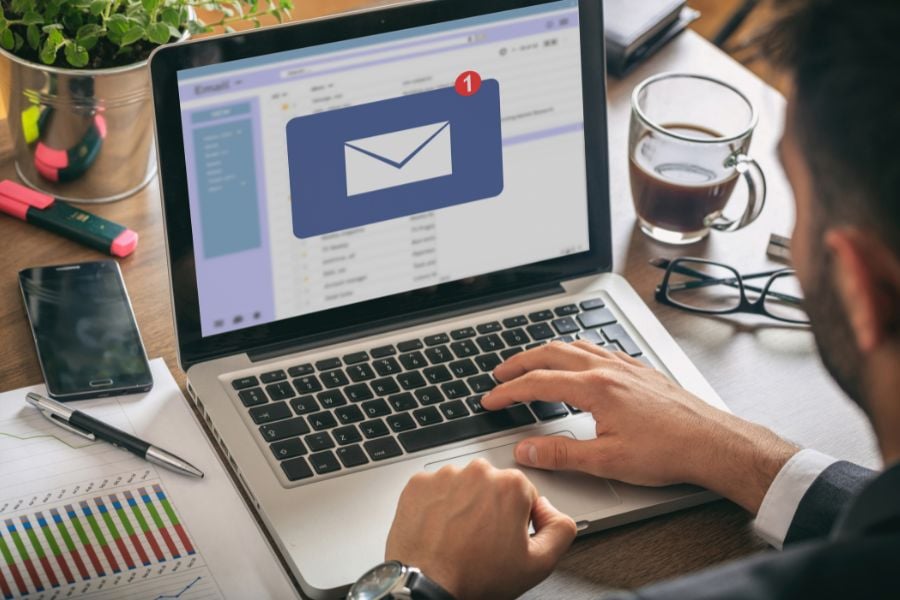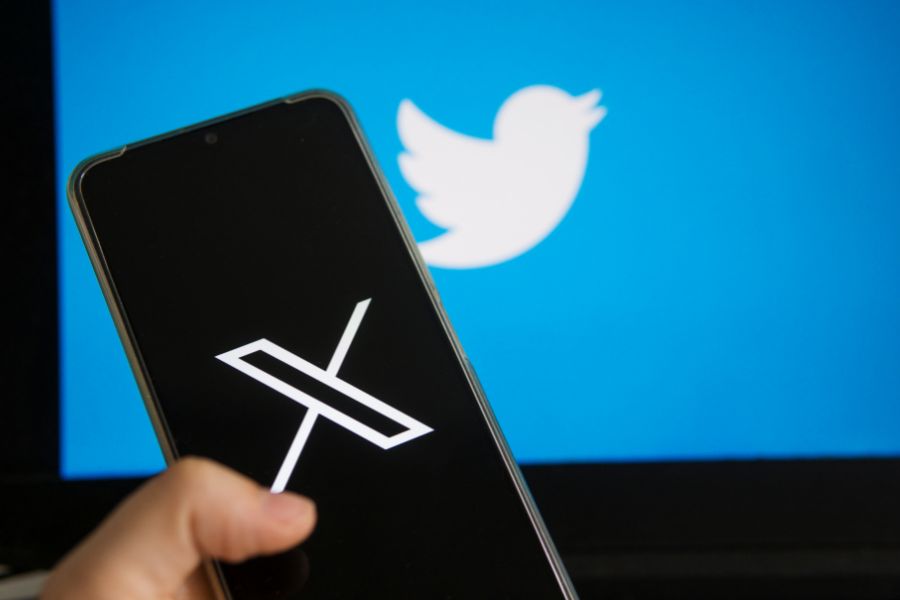Navigating the vast world of cold emails can feel daunting, right?
You’re not alone.
Here’s the secret… A solid, well-crafted cold email could be your golden ticket to new opportunities.
From defining your goal to personalizing your message, we’ll dive into actionable strategies that’ll make your cold email marketing stand out, win over your prospects, and drive results.
You’ll even get a template to kickstart your efforts.
Excited yet?
Let’s begin.

What is a Cold Email?
Picture this…
You’re reaching out to someone for the very first time. No previous banter, no shared acquaintances, just a fresh, friendly “how do you do” landing squarely in their inbox.
That, dear reader, is the essence of cold email marketing!
It’s your initial point of contact, that unsolicited yet potentially rewarding message you outreach to a potential client, future employer, or potential customer.
Think of it like a digital cold call but with more charm and less intrusion.
A cold email campaign is your chance to spark a conversation, build a connection, and lay the groundwork for a mutually beneficial relationship — all without leaving your desk!
Cold Email: The Good and The Not-So-Good

Cold emails, when done right, can be like finding a hidden gem. They’re your secret weapon, unlocking untapped opportunities, prying open new doors, and extending your reach to places you’ve only dreamed of.
Let’s break this down a little further…
The Good:
- Unlocking Opportunities: Imagine landing that crucial client or a dream job interview, all from a well-crafted email. Isn’t that magical? It’s like discovering a pot of gold at the end of the rainbow.
- Networking: A cold email isn’t just a sales email. They’re a fantastic tool for networking, too. By reaching out to someone new, you can expand your professional circle and even foster collaborations that drive your career forward.
- Personal Development: Crafting cold emails also contributes to your personal development. It enhances your persuasive writing skills, encourages strategic thinking, and boosts your confidence.
However, like any powerful tool, cold emails also have their not-so-good side. And by understanding these potential pitfalls, you can better navigate the cold email landscape.
The Not-So-Good:
- Spam Traps: A poorly executed cold email might not just go unnoticed — it could land you in the dreaded spam folder.
- Negatively Perceived: It’s no secret that when you send cold emails, it can sometimes be perceived as intrusive or annoying, especially if they come across as impersonal or like a sales email.
- Time-Consuming: Crafting an effective cold email is not a quick task — it requires research, planning, and careful writing.
A cold email, therefore, is a double-edged sword.
On one hand, it has the potential to create magical moments, opening doors and creating opportunities.
On the other hand, when not crafted carefully, they can land in a spam folder, have negative perceptions, and wasted time.
That’s why it’s crucial to master the art of cold emailing and why this guide is here to help.
What is the Best Time to Send a Cold Email?
Ever wondered when to hit ‘send’ for maximum email deliverability? Siege Media suggests the best time to conduct cold email outreach is between 06:00 to 09:00 PST on a Monday.
That being said, the world isn’t a monolith, and neither are email-opening habits. What if your prospect is a notorious night owl or works non-traditional hours? This is where the real game begins.
So, it’s crucial to remember that these suggestions aren’t set in stone but are starting points.
Turn on your detective mode: test different days and times, analyze your response rate, and track your prospect’s online activity if possible (LinkedIn is great for this).
As you gather more data, you can refine your approach and hit ‘send’ when it’s most likely to result in an ‘open’.
6 Effective Steps to Crafting Your Cold Email Outreach Strategy

Ready for some marketing email alchemy? Here’s your step-by-step guide to transforming your cold emails from icy introductions to warm, engaging conversations.
Step 1: Define Your Goal
Like a marksman lining up a shot, having a clear goal in mind is crucial to your cold email strategy.
Sending a cold email without a clear objective is like launching a ship without a compass.
Are you looking to set up a meeting? Secure a sale? Receive feedback? Every word, every sentence in your email should serve this goal.
Your recipient should finish reading your email and know exactly why you reached out. Clear as crystal, sharp as a tack. So, before you hit ‘compose,’ take a moment to clarify your aim.
A well-defined goal is your north star, guiding every word you write.
Step 2: Know Your Audience
Knowing your target audience is like having a roadmap in a foreign city — it empowers you to navigate smoothly and effectively.
When you send cold emails it’s not about you, it’s about your recipient. What do they need? What problems do they face? What interests them? If you were them, why would you care about your email?
If your message aligns with their needs and wants, you’ve just made a friend.
So, do your homework.
Get to know your audience’s challenges, interests, and goals.
Google them, check out their LinkedIn, read their blog — get your detective hat on. Because when you tailor your message to your audience, you’re not just another stranger in their inbox.
You’re a valuable contact.
Step 3: Craft a Catchy Subject Line

Your subject line is the golden key that unlocks your email. It’s the first impression you make, and boy, does it count!
Keep it short and sweet, but also personalized and intriguing.
Your subject line should read like an irresistible invitation to a great conversation…
What about something like “Loved your article on sustainable fashion” or “Inspired by your latest project in AI tech”
Notice how these examples feel personalized and genuine? That’s what you’re aiming for.
With a great subject line, you’re not just battling against ‘unread’ status, you’re winning the war against indifference!
Step 4: Keep It Short and Sweet
Let’s be honest, no one has the time (or patience) for an epic saga unfolding in their inbox.
So when it comes to cold emails, think micro-tale, not macro-tome. Aim for about 100 words — short, sharp, and to the point.
Your recipient will thank you for the brevity, and a concise email increases the chances that your message will be read, not just skimmed over.
Consider this your miniature elevator pitch — can you get your point across before the proverbial doors close?
An example?
“I enjoyed your article on renewable energy and think our solar solutions might interest you. Can we chat?”
Step 5: Personalization
Generic, mass-produced email? It’s about as exciting as watching paint dry.
A personalized, well-researched message, on the other hand, is like a ray of sunshine in a cloudy inbox.
Here’s the deal: sprinkle in some specific details about your recipient to show you’ve done your homework. Mention their latest blog post or reference their company’s recent achievement.
This attention to detail not only shows your dedication but also helps you build a genuine connection.
Your email is not just another mass mailing — it’s a personal note, just for them.
Step 6: Include a Call to Action
So you’ve crafted a brilliant, personalized email. Now, what’s next? You want a response, right?
Then don’t beat around the bush — ask for it! Include a clear, simple call-to-action.
This could be a question, a meeting invite, or a request for feedback.
Make sure your recipient knows exactly what you want them to do next.
For instance, “Would you be available for a quick chat next Tuesday to discuss the possibilities?” or “Could you provide feedback on our latest product proposal?”
By leading them to the next step, you’re not just sending an email, you’re starting a conversation.
The Perfect Cold Email Template

It’s time to put theory into practice. Get ready to draft your ideal cold email with this foolproof template.
Tailor it to your needs, sprinkle in your unique flair, and voila — you’re all set to hit ‘send’.
Subject: Quick Question About Your {Specific Detail}
Hi {Recipient’s Name},
Loved your recent post on {Topic}. It got me thinking about {specific detail}.
I’m {Your Name} from {Your Company}, and we {briefly describe product/service/benefit}. Given your interest in {Recipient’s Area of Interest}, I thought you might find it useful.
Would you be open to a quick chat on {Proposed Date} to discuss how we might help you {achieve specific goal/benefit}?
Looking forward to your response.
Best,
{Your Name}
Now, remember, these are just guidelines.
Note, the real magic happens when you experiment, test, and tailor your cold emails to fit your unique context and audience.
But with these basics, you’re well on your way to crafting effective cold emails that don’t just get opened but get results!
The Power of a Perfect Cold Email
Feeling a tad overwhelmed?
Cold outreach can seem like an uphill task, but remember, you’re not climbing this hill alone.
With this cold email masterclass, that daunting hill just turned into a doable slope.
So, dust off those fears, ditch cold calling, and start crafting an effective cold email campaign!



